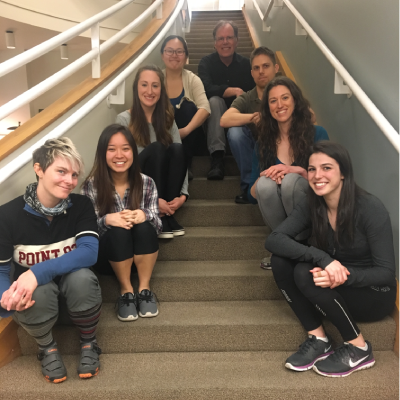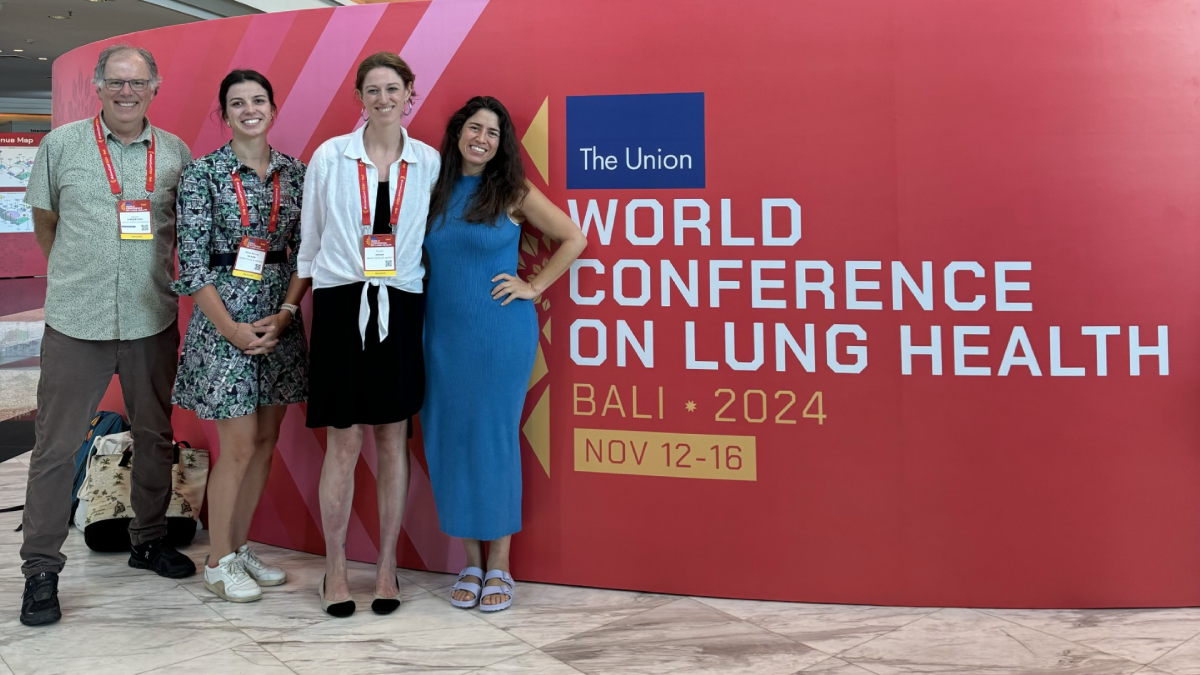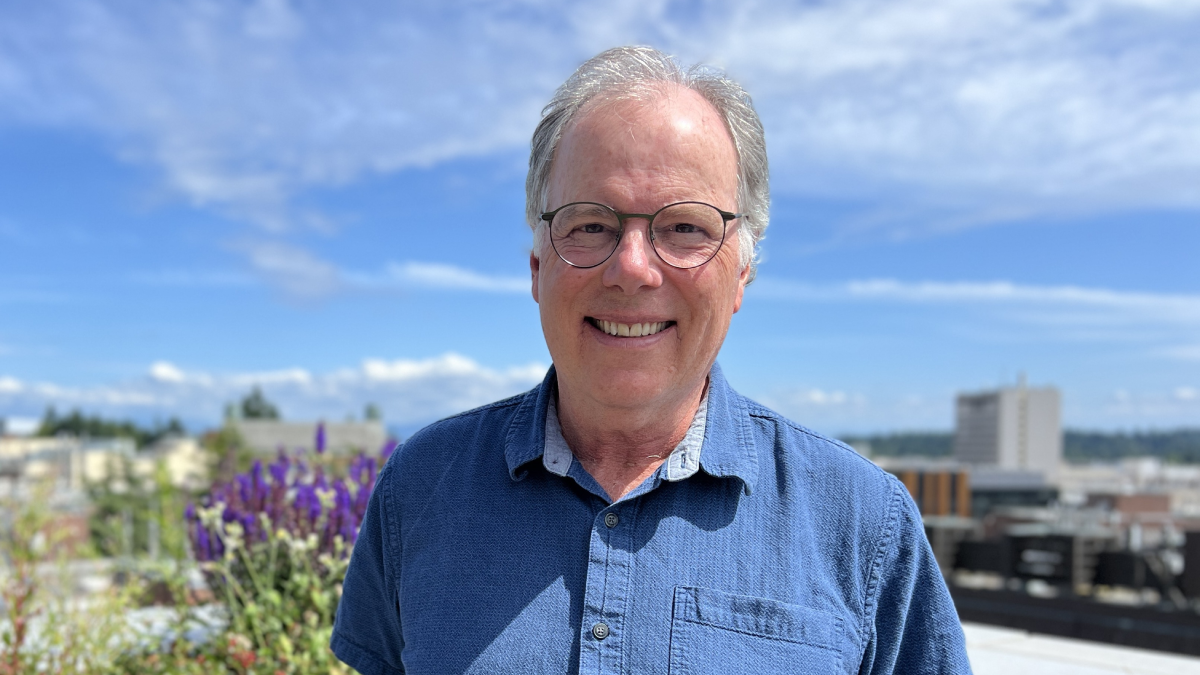Gerard Cangelosi
Professor, UW Department of Environmental & Occupational Health Sciences
Proudest achievements:
Validating tongue swabs for TB screening and nasal swabs for COVID-19 self-testing; teaching and mentorship
Joined DEOHS faculty:
2012
“Coming to the School of Public Health got me thinking about prevention. The goal is to prevent disease from happening in the first place, and to keep people out of clinics and hospitals.”
- Jerry Cangelosi
For Dr. Jerry Cangelosi, becoming a faculty member in the UW Department of Environmental & Occupational Health Sciences (DEOHS) gave him the chance to try out an idea that many people thought was crazy at the time.
In 2012, if someone wanted to get tested for tuberculosis — the world’s deadliest infectious disease — they had to cough up sputum, a thick secretion from their lungs. Getting a sample was often challenging and uncomfortable for patients and even their healthcare providers.
Cangelosi remembered his mother, who served as an Army nurse in North Africa during World War II, telling him that the thing she hated most about nursing, even after working in a war zone, was collecting sputum samples.
He thought that a simpler, less invasive screening approach — using swabs to take samples from people’s mouths — could help prevent TB from spreading by allowing many more people to be tested in community settings such as schools, workplaces and prisons.
“When you find someone who has TB disease, you get them on treatment early. That helps them a lot,” said Cangelosi, who is retiring this month after 13 years as a faculty member in DEOHS and a recent term as associate dean for research at the UW School of Public Health.
“But for those cases that are prevented, it helps even more. A person with TB might, on average, spread it to three or four or five other people. Those other cases can be prevented by quickly identifying the first case and getting them on treatment.”
Testing a “crazy idea”
In 2012, when Cangelosi joined DEOHS, he said recently, “the whole idea of oral swab screening was really novel. It was impossible to convince funders to fund it, and very difficult to get it through peer review.”
.jpg)
Startup funds from DEOHS allowed him to finally test the idea along with Rachel Wood, his first graduate student in the department and now a research scientist in his lab, and their collaborators in South Africa.
Since then, he and his team have shown, with support from the U.S. National Institutes of Health, the Gates Foundation and other funders, that this approach can effectively screen people for TB. It has 75% to 95% sensitivity at detecting cases in people showing symptoms of TB, compared to sputum analysis.
"Jerry's research and efforts to promote oral swabs for detecting TB are incredibly important and have enormous potential public health impact given the large number of undiagnosed TB cases in the world," said DEOHS Professor and Interim Chair Lianne Sheppard.
From TB to COVID screening
During the COVID-19 pandemic, the team’s work expanded when they partnered with the Everett Clinic to validate what is now a familiar healthcare innovation: nasal swabs that allow people to test themselves for COVID-19.
“The COVID-19 nasal swabs were an extension of our work on TB, and they are a prime example of how global health research can really help save lives and save money for Americans,” Cangelosi said. “It enabled cheaper testing, and it enabled people to test at home” to prevent the spread of disease.
A dedicated educator
In addition to his research chops, Cangelosi is a gifted teacher and mentor who has been an adjunct professor in the Departments of Global Health and Epidemiology. In 2021, he was awarded the DEOHS Outstanding Faculty Mentor Award, and he recently admitted he almost shed tears while teaching his last class in the department.

“I've had people in my classes who are interested in environmental health and global health careers. I've had premed students. I've had students taking poli sci majors, ROTC students, Husky crew athletes,” he said. “They all bring different things to the class, and it was just wonderful getting to know them.”
“He is easy to relate to and shows us he cares,” Renée Codsi, a PhD student in Cangelosi’s lab, said when she nominated him for the faculty mentor award. “He values the importance of a congenial working environment in our lab, plans excursions for us to get to know each other outside of the lab and fosters a supportive, collaborative team. He has opened up his professional network, offering support and networking for my professional and academic career.”
Speaking about his former trainees, including Wood, Codsi and research scientist Alaina Olson, Cangelosi said, “They have grown, and they've thrived, and they have international reputations now in tuberculosis research. I'm very proud of that.”
“What has stood out to me about working for Jerry is that he is supportive of my personal career goals, in addition to, and even outside of, my work for him. I am grateful for his mentorship, advocacy and encouragement,” Wood said. “His belief in me and my goals has been a constant motivator.”
“My advice to other researchers is to follow an investigator who doesn’t shy away from an idea being called ‘crazy’ by the rest of the field — sometimes, just sometimes, they’re on the right path,” Olson said.

Serving the school and the world
For the past few years, Cangelosi has served as associate dean for research in the School of Public Health. The experience was empowering, he said, despite the challenges of recent cuts to public health research funding.
“We couldn't change what they decided to do in Washington, but we could certainly help soften the impact, and try to enable people to continue their research despite these challenges,” he said.
“It felt good to be acting on a broader level to promote public health research. Every person in Washington state, every person in the U.S., every person in the world is affected by some of the challenges that we address.”
World-changing ideas
During retirement, Cangelosi is looking forward to catching up with his extended family and traveling.
But he will continue his TB research, and he is hopeful that his once crazy-seeming idea will continue to gather steam. The cost of oral swab testing is going down and could soon approach a few dollars per test. The World Health Organization recently put out a call for data on the method and will consider endorsing it later this year.
“That could see it implemented all over the world,” he said.




